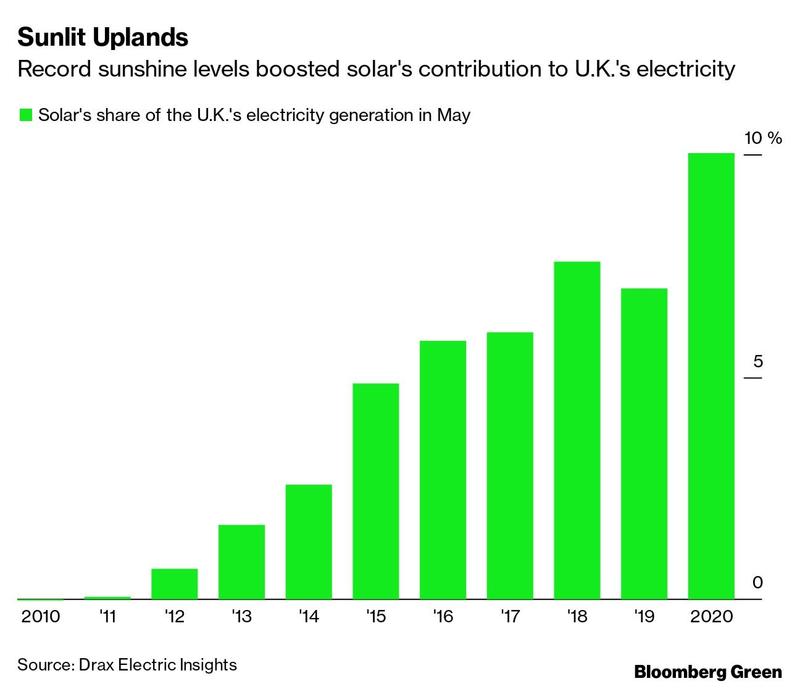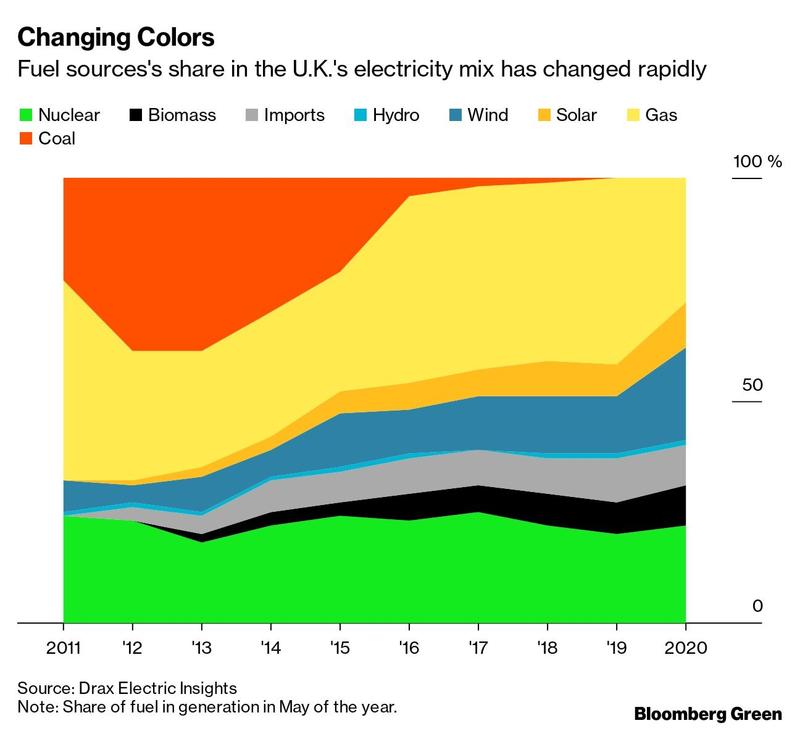
The UK’s sunniest spring on record has boosted solar power’s share of the electricity mix to new heights.
The abundance of solar generation has meant that the UK has been coal-free for a record 53 days, according to National Grid Plc data
Clear skies throughout May, with low power demand during the coronvirus lockdown, helped the clean power source to provide a new high of 33 percent of the country’s electricity on May 30, according to Drax Electric Insight’s quarterly report.
Throughout last month solar power supplied an average of 2.6 gigawatts a day — an increase of a quarter over the same period a year ago and a number that dwarfs the 20-megawatt average generation in May 2011.
The abundance of solar generation has meant that the UK has been coal-free for a record 53 days, according to National Grid Plc data. Coal stations aren't used much during the summer months, so stations may not come back until winter when demand normally rises. An earlier report confirmed that renewables supplied more power in the UK than fossil fuels in the first quarter of 2020—a first.
ALSO READ: Britain to bring forward ban on new petrol and diesel cars

In May, high levels of solar and wind have combined with low consumption to create too much supply, causing balancing problems for the network and negative prices in the wholesale market. National Grid had to turn off thousands of megawatts of renewable power on May 24 and 25 to stabilize the grid balance the network. On May 30, power prices were negative for several hours during the afternoon.
“To allow more renewables to come onto the system the grid has to become more flexible and separately procure stability services,” said Iain Staffel from Imperial College London and lead author of Drax Electric Insight’s quarterly reports. “The role that biomass, gas and pumped storage power stations play in both balancing the grid and securing supplies is increasingly important as the grid evolves.”


